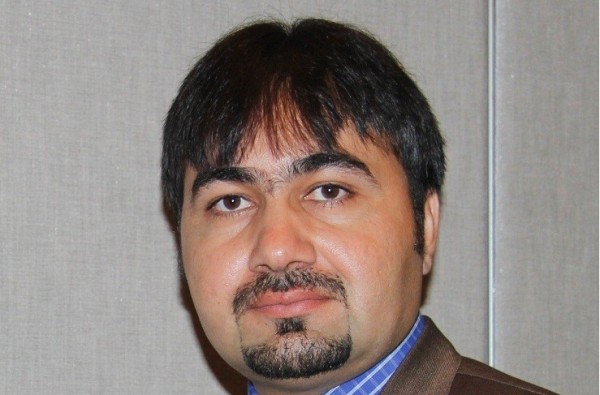Khan Wali Khan Basharmal-The influence and interruption of the warlords, corrupt bureaucrats and tribal leaders in the social, economic and bureaucratic system of the government of Afghanistan, have to go; many such instances derailing the progress of Afghan society. Our weak bureaucratic structure and tribal-based non-technological system of institutional hiring comprise a serious bone of contention for well-qualified Afghan youth, educated in good universities in India, Iran, Pakistan and the Central Asian republics. Meanwhile, the already existing bureaucratic system in Afghanistan, making worst the lives of the people of Afghanistan in terms of providing them underprivileged services and anguishing them mentally because of institutional ineffectiveness and inability in understanding the modern ways to deliver to the people. This is an open secret that e-governing comes through modernizing, digitalizing and improving the quality of education.
These young would-be civil servants, administrators, and professionals have unnecessarily become victims of depression, frustration and other psychological disorders as a consequence of the unplanned and wrong-headed policies of our Ministry of Labor and other relevant stakeholders. Such misguided bureaucratic administration not only gives rise to despondency among the unemployed and underemployed youth but unintentionally drives our best and brightest to seek employment in developed countries, while gifting our enemies with a strong assist in the recruiting activities of anti-Afghan terrorist organizations.
The struggle __ unwavering efforts of NUG in regards of bestowing the services to the private entities is a hallmark, and optimistic approach but still needs careful attention of the government in order to ensure and realize the people that they are the ultimate necessary focus to be satisfied through providing good services in all walks of life in lines of modern technological age. President Ashraf Ghani and his team need to restructure the bureaucratic system. We need to establish a responsive public services commission as well as a trustworthy public reforms commission. A rational, well-ordered civil service system needs to be developed and utilized by the government to reassess all the existing government servants and critical employees in responsible sectors. It is evident that the current outmoded and counter-productive system of delegating authority to deputy ministers and directors hired on the basis of political or religious connections has to end, and that future staffing decisions must be based on talent, merit, and genuinely relevant qualifications.
It is in the nation’s utmost interest that a national public services academy for training civil servants be formed, an institution that could likewise monitor the national progress towards achieving a sensible and transparent process of hiring talented and qualified individuals in meaningful positions. Likewise, it is of utmost importance to quickly redress the current inequities in hiring and promoting qualified and properly trained staff members. The academic and professional sectors must be enlisted to ensure appropriate budgeting and funding of this prospective system.
Leaders, entrepreneurs, and innovators, like Mirwais Alizai, who came with a well-disciplined experience on an international level can surely devote and contribute on fixing the bureaucratic problems of Afghanistan. The person who may be known for everyone came with a complete professional team and system, Ravan Services (Rawan Khidamaat), where his team is striving and enduring to present solutions to the bureaucratic problems of the Ministry of Foreign Affairs of the Islamic Republic of Afghanistan.
Notably, his team introduced the latest and update system for fulfilling and benefiting the customers’ desires; with the latest technology and work like management in order to enable the people to realize the taste of modern bureaucratic system. This leading and pioneer role can also be a track line for many other stakeholders in Afghanistan to address the problems of the people of Afghanistan through restructuring the bureaucracy. There is already a bunch of writing in view revealing the fact to the people and other ministries that how Ravan Services (Rawan Khidamat) benefit the people.
It is encouraging that not some but most of the elements within the government system is crying for all moonshine because they have been deprived of their all those motivational fees or clearly corruption in form of bribe to whom they were subservient and were taking from the people in figure of keeping their paper work in pending, so the corrupt officials could make money in this way. Let the entity thrive, shine and effectual in fixing the already old-fashioned paper based bureaucracy through e-governance providing excellent, easy, and reliable services with a great credibility.
For very sure, all those elements are creating hindrance in the way of modern bureaucracy believe in corruption, unchangeable rigid behavior and obsolete system.
It is in the highest interest of the Afghan government to come with intrepid and moderate perception and action in all areas of promoting Afghanistan’s bureaucratic system. All those suggestions have been made in the initial paragraphs should take practical shape as soon as possible through a determined staying power and will. Independent Administrative Reform and Civil Service Commission of the Islamic Republic of Afghanistan need to take all the necessary measurements to fix the problems of Afghanistan. The Afghan state should design and apply effective programs to foster and develop all the areas of progress while ensuring equal development.
If such steps are not taken, then we should not expect any acquiescence in our system by the rank and file of the Afghan people, for it would continue to be a system primarily serving the singular interests of warlords and privileged elites.
The writer is a political economist engaged in the Afghan and international spheres while writing on relevant concepts and strategies. Mr. Basharmal currently acts as the General Director of the Strategic Center for International Relations and Editor-in-Chief of its quarterly publication. He can be reached at [email protected]
 Afghanistan Times Latest News and Analysis from Afghanistan and the Region
Afghanistan Times Latest News and Analysis from Afghanistan and the Region




